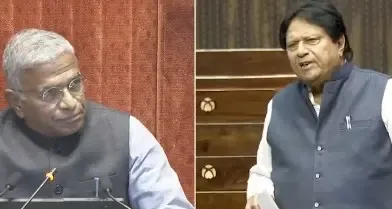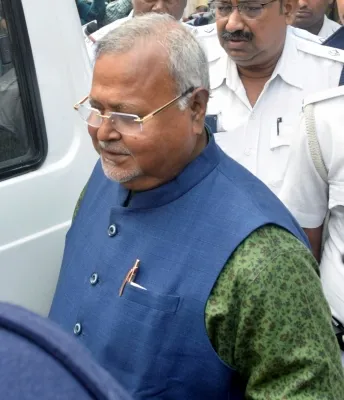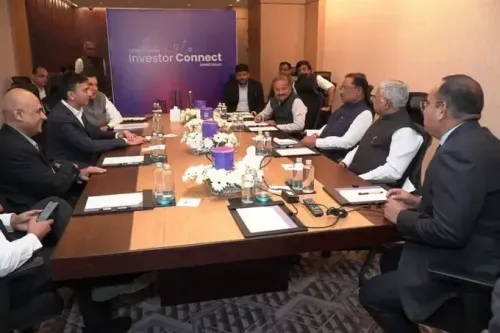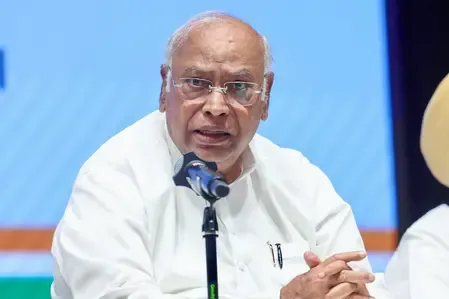Ramji Lal Suman Labels Rana Sanga a 'Traitor,' Ignites Controversy

Synopsis
Key Takeaways
- Ramji Lal Suman labels Rana Sanga a 'traitor.'
- Comments made during a discussion on the Home Ministry's functioning.
- Reactions from BJP leaders including Sanjeev Balyan.
- Historical context of Rana Sanga and Babur discussed.
- Call for an apology from the Samajwadi Party.
New Delhi, March 22 (NationPress) Senior leader of the Samajwadi Party and Rajya Sabha member Ramji Lal Suman has ignited a significant controversy with his comments in Parliament regarding a prominent historical Rajput monarch.
During a session focusing on the operations of the Home Ministry, Suman described the 16th-century Rajput king Rana Sanga as a 'traitor.' His remarks have provoked strong reactions across the political spectrum.
While addressing his speech, Suman took aim at the BJP for its recurrent assertions about the historical roots of Indian Muslims.
He stated, 'BJP leaders often claim that Muslims carry the DNA of Babur.'
'However, it is essential to note that Indian Muslims do not regard Babur as their role model. In fact, who was responsible for bringing Babur to India? It was Rana Sanga who extended an invitation to him to defeat Ibrahim Lodi. Therefore, if you assert that Muslims are descendants of Babur, then you must also recognize that you are descendants of Rana Sanga—a traitor. We criticize Babur, but not Rana Sanga.'
Suman's comments have caused considerable uproar. Former BJP MP Sanjeev Balyan condemned the statement, labeling it an affront to Rajputs.
'Shame on you—crossing all limits of appeasement. To label the great warrior Rana Sanga as a traitor in Parliament is a profound insult to the Rajput community and the entire Hindu society.' Balyan expressed in a social media post, sharing a clip of Suman's remarks.
'The Samajwadi Party owes the nation an apology for such a disgraceful act.'
Rana Sanga, part of the Sisodia dynasty, ruled over Mewar from 1508 to 1528. He is celebrated for uniting diverse Rajput clans to combat the growing dominion of the Delhi Sultanate. His realm spanned modern-day Rajasthan, Gujarat, and sections of Madhya Pradesh, with Chittor as its capital.
Babur, a descendant of both Genghis Khan and Timur, invaded India in 1526, defeating Ibrahim Lodi of the Lodi Dynasty in the first battle of Panipat, thereby establishing the Mughal Empire in India.








